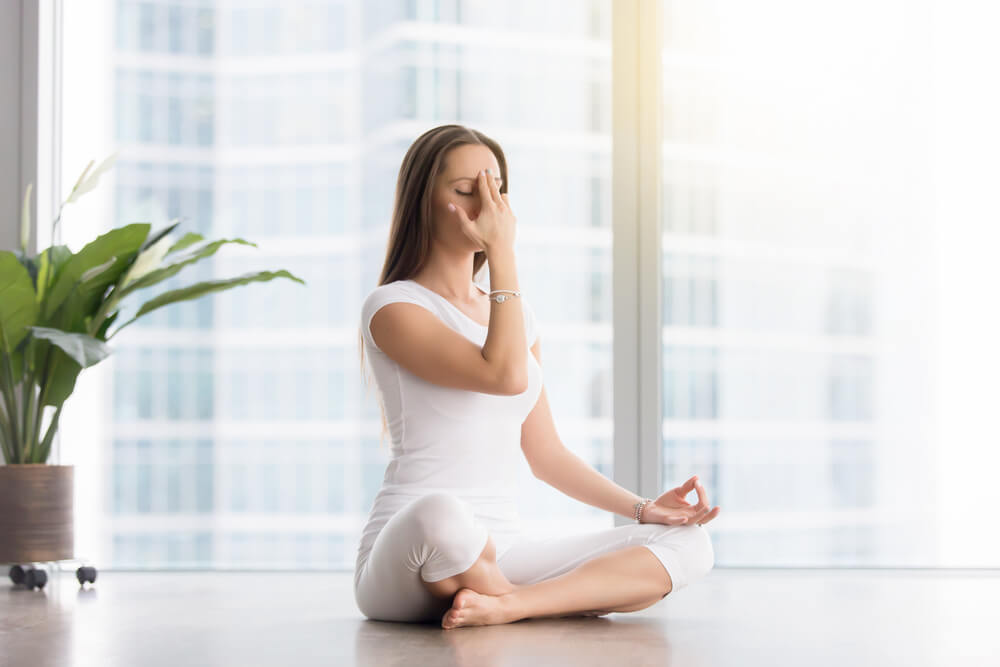How to Prevent Panic Attacks & Control Anxiety
Have you or a loved one experienced a panic attack recently? Do you often suffer from anxiety? Read on to find out how to prevent panic attacks and manage them when they strike.
What are panic attacks?
A panic attack is an extreme response of the body to fear. The body undergoes a sudden and intense feeling of anxiety, while also having symptoms such as breathlessness, dizziness, irregular heartbeats and nausea.
When do they occur?
The reasons for panic attacks are still mostly unknown. Often, they’ll strike without any warning or trigger and can even occur during sleep. There is some research which suggests that panic attacks can be hereditary, yet it’s not a definite – many people have experienced them with no family history of the issue.
There are certain situations where you may experience a panic attack in response to a medical condition. This list from Helpguide.org identifies the following as potential causes for panic attacks:
- Mitral Valve Prolapse
- Hyperthyroidism – Overactive thyroid gland
- Hypoglycemia – Low blood sugar
- Stimulant use – amphetamines, cocaine, caffeine.
- Medication Withdrawal.
If you are experiencing panic frequently, it’s important to see a doctor to ensure there are no other causes or medical issues.
What are the symptoms of a panic attack?

With most panic attacks, symptoms will present abruptly and peak after about ten minutes. Most end within a 20-minute timeframe. However, in rare cases, they can last up to an hour. The symptoms of a panic attack include:
- Shortness of breath
- Dizzyness
- Feeling faint
- Numbness or tingling sensations
- Fear of dying
- Feeling detached from surroundings
- Chest pain
- Trembling & shaking
- Nausea
- Irregular temperature (hot and/or cold)
Why do these symptoms occur?
The body has a set response to danger commonly known as ‘fight or flight’. When a threat appears, your nervous system bursts into action. Adrenaline is quickly rushed into your bloodstream, while your heartbeat increases and your breathing speeds up. This process allows more oxygen into the bloodstream and improves your senses. When experiencing a panic attack, your body jumps into the same ‘fight or flight’ response – the only difference is that there is no threat.
What are the best ways to manage panic attacks?

There are plenty of ways to deal with and prevent panic attacks. There are methods for dealing with them when they strike and there are also methods for preventing them. It’s important to know about both and be able to lessen their frequency while knowing you can cope if one does strike.
How to deal with a panic attack while it’s happening:
1. Control your breathing
As a panic attack is your body jumping into a heightened state of anxiety, your heartbeat and breathing will increase to maximise oxygen intake. By controlling your breathing you can limit the length of the attack. Focus on slowing your breathing down, taking big breaths, breathing in through your nose and out through your mouth.
2. Count
Similar to controlling your breathing, counting will also help return your body to its normal state. It’s recommended to count in time with each breath. Whether you choose to count to 5, 10 or 20 is up to you, but make sure to keep repeating the process and gradually slow down the pace at which you count.
3. Focus on your environment
Panic attacks often make you feel detached from your environment. Therefore, it’s a good idea to try and take stock of what’s around. Consider identifying how many different things you can see or feel around you. This process will help you focus on what’s real rather than your anxiety. It will also help you control your breathing and heart rate.
Related: A Guide to Student Health Services in London
How to prevent panic attacks:

1. Exercise regularly
Exercise is proven to relieve anxiety and prevent panic attacks. Helpguide.org states just 30 minutes of exercise per day is a good target and can help reduce the frequency of your attacks.
2. Practice relaxation
Consider taking up yoga or meditation to help you strengthen your ability to become calm. These relaxation techniques will not only help reduce the frequency of attacks but will help you when experiencing one too. As mentioned, the breathing techniques of yoga and meditation are one of the best methods for controlling an attack.
3. Spend time with loved ones
Anxiety can increase with isolation and loneliness. Therefore, it’s important to focus on your relationships and friendships.
4. Limit smoking, alcohol and caffeine
Nicotine, alcohol and caffeine can make panic attacks more frequent and extreme. They negatively affect the heart rate and levels of serotonin, dopamine and other hormones, creating an imbalance.
5. Improve your sleep hygiene
Sleep is incredibly important. Not only does it helps restore your body but it allows your nervous system time to relax. Studies show that a lack of sleep results in higher activity for the nervous system.
6. Educate yourself on anxiety
Understanding the facts around panic attacks can help you to relax when one strikes. Knowing that your body’s response is designed to keep you safe can help you recognise that panic attacks are not dangerous. Of course, when your whole body is screaming at you that something is wrong, it is difficult to relax. But knowing that the response is designed to make you more alert should help you recognise that nothing is wrong and you just need to return to a normal state.
Summary
Panic attacks are nothing to be afraid of. They aren’t dangerous and will always pass, usually within 20 minutes. There are also methods you can implement to prevent them and control them too. When experiencing an attack, try to control your breathing and focus on your environment. To prevent panic attacks before they happen, a healthy lifestyle is key with diet and exercise playing an important role.
References:
- https://www.med.upenn.edu/ctsa/panic_symptoms.html
- https://www.helpguide.org/articles/anxiety/panic-attacks-and-panic-disorders.htm/
- https://www.ncbi.nlm.nih.gov/pubmed/16585410
- https://www.ncbi.nlm.nih.gov/pmc/articles/PMC3684250/
Further resources:
Mind
NHS
AnxietyUK
MentalHealth.org